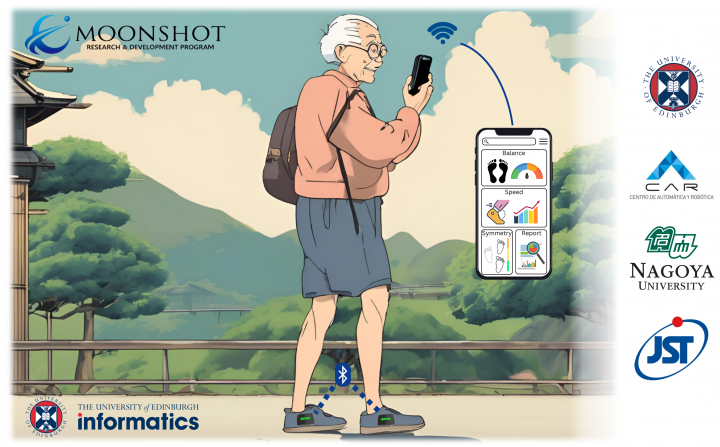Moonshot: Addressing Neural Degeneration Challenges
The University of Edinburgh and Japan Science & Technology (JST) Collaborative Moonshot Project

Monitoring and Intervention in Neural Degeneration
Wearable sensors enable us to monitor activities of daily living, and together with AI, allow us to detect neural degeneration early. In multiple sclerosis (MS) and Parkinson's disease (PD), an early detection of the symptoms can lead to early treatment and improved quality of life.
In this project, in collaboration with Nagoya and Tokyo University in Japan and the Cajal Institute in Spain, we develop algorithms to monitor the progression of neurodegenerative diseases and treat some of the symptoms in people with MS and PD using wearable sensors, AI and functional electrical stimulation.
This project directly contributes to the Goal 3 of the Moonshot programme: Realisation of AI robots that autonomously learn, adapt to their environment, evolve in intelligence and act alongside human beings, by 2050.
Moonshot Programme Goal 3 (external site)
